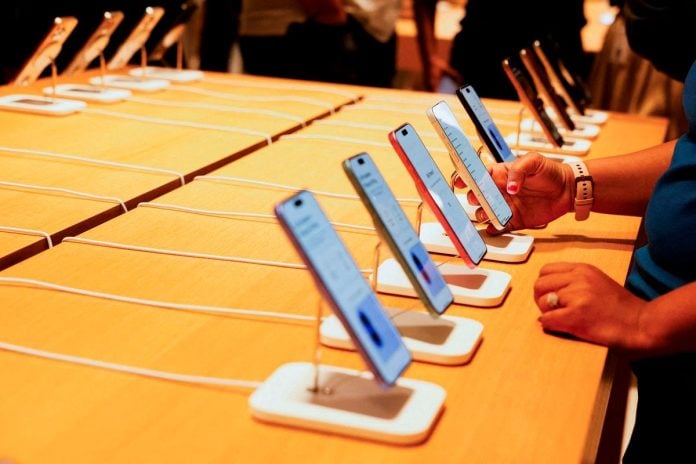SAN FRANCISCO: Apple is preparing to launch its iPhone 17 lineup on Tuesday with artificial intelligence enhancements expected to be the main attraction.
The technology giant has kept details secret about its “Awe Dropping” event, which coincides with Apple’s traditional annual iPhone announcement schedule.
Despite maintaining premium market positioning, Apple faces increasing pressure to demonstrate competitiveness in the generative AI market.
Market research firm Canalys noted that Apple’s perceived delay in AI development presents a significant challenge for the company.
Android-powered competitors have aggressively advanced AI integration while Apple’s slower rollout of first-party features has created adoption gaps among consumers.
Apple introduced its “Apple Intelligence” AI features late last year, but user response has been underwhelming, particularly regarding the Siri voice assistant improvements.
The company reportedly plans AI integration into online search next year alongside a Siri overhaul, though these reports remain unconfirmed by Apple.
Forrester analyst Thomas Husson expressed doubt about major AI strategy announcements during the upcoming event.
Husson added that Apple’s incremental innovation approach with the iPhone 17 might begin reaching its limits for consumers seeking more substantial advancements.
The new iPhone models will feature an ultra-thin “Air” variant as the main attraction of Tuesday’s launch event.
Analysts view this as a strategic shift where Apple positions thinness rather than screen size as the new premium differentiator.
The ultra-thin design could potentially lay the foundation for a future foldable smartphone version expected in coming years.
Engineering requirements for thin phones may increase production costs and reduce available battery space.
New iPhone prices in the United States are expected to rise due to President Donald Trump’s tariffs affecting Apple’s production costs.
China remains Apple’s primary production hub, making these trade policies directly impact manufacturing expenses.
Canalys noted that Apple is balancing its two largest markets – the US and China – amid growing trade tensions.
A weaker US dollar currently allows Apple to increase US prices while maintaining competitive international pricing.
The financial impact has already been substantial, with CEO Tim Cook disclosing $800 million in tariff costs last quarter.
Apple anticipates an estimated $1.1 billion tariff impact during the current quarter. – AFP








